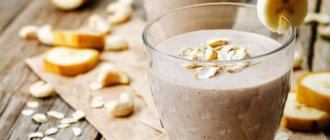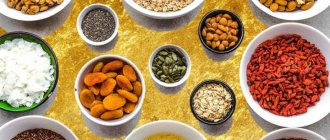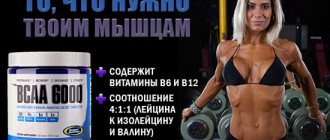Protein dosage standards per day for those involved in sports. What happens if these standards are exceeded? Side effects of protein. Most athletes do not doubt the benefits of protein. They tried it on themselves and enjoy the results. But there is another category - beginners. They are still afraid, gathering information, looking closely at the technique and nutritional habits of other athletes. At the same time, everyone has their own reasons. Some refuse protein due to lack of funds, others are afraid of side effects, and still others do not want to gain weight. With the first excuse, everything is clear (there really may not be enough money). But what about the side effects? Is it really possible to gain weight from taking protein?
The main essence of protein
First, let's look at the features of this supplement. All life on the planet is made up of amino acids. The molecules of the latter form long chains, which are ultimately converted into a whole structure - protein. Today there are dozens of different amino acids, which suggests many combination options. As a consequence, the structure of the protein is also different (hence its many types)
The human body also consists of this substance, which tends to be consumed, destroyed, or even ages. Consequently, the supply of protein food from the outside is a key factor in the growth and development of the body. In case of deficiency, weakness appears and illness begins. There can be no talk of any muscle gain.
Is it possible to drink protein without training?
Sports activities help to significantly strengthen the muscle corset. Working on yourself allows you to increase muscle size, endurance and strength. It is known that growth requires the presence of a building material, which in the case of the human body is protein. At a certain stage, the amount of amino acids supplied with food becomes insufficient, and in order to stimulate further muscle development, athletes use special nutritional supplements - protein shakes.
Information about this method of supplementing your diet with essential nutrients quickly spread in wide circles. In this regard, many began to be interested in the question, what will be the effect of taking protein drinks without training in the gym? This article will discuss whether it is possible to drink protein without training, and whether there is any benefit from such actions.
Sports activities help to significantly strengthen the muscle corset
Dosage
A characteristic of most bodybuilders is their excessive protein consumption. They calmly take 200-300 grams of protein per day and are not afraid of gaining weight. The reason is a properly structured diet and even distribution of the load. Of course, they gain weight, but it is mostly “dry”. That is, the result of exercise is an increase in muscle mass, not fat.
It is believed that you can take from 0.8 to 1 gram of protein per kilogram of weight per day (this is the medical norm). But professionals rarely listen to her. They consume up to 2-4 grams of protein per kilo and feel great. At the same time, the likelihood of gaining weight in the case of active exercise and proper nutrition is completely absent.
Types of metabolism in the body
There are several types of metabolism in the human body:
- carbohydrate;
- protein;
- lipid.
They maintain the vitality of the body. Each type of exchange is responsible for certain processes and effects. For example, the carbohydrate link provides a person with the necessary amount of energy for the brain and other body systems to function normally. But protein is the material from which muscles and elements of the immune system are built.
If there is insufficient supply of one of the necessary substances, dystrophy of a certain type develops, which negatively affects well-being and appearance.
It is permissible to consume sports nutrition without training in two cases. First of all, if a person has poor nutrition, the diet is unbalanced and the cells simply lack protein. The body of such a person is exhausted; morphologically, a reduced body weight relative to the norm, weak muscle strength, and insufficient cross-sectional area of muscle fibers are determined. In such a situation, protein shakes will replenish the missing nutritional elements, which will normalize the immune system and promote muscle gain.
When certain values due to genetic predisposition are reached, the muscles will stop growing. At this stage, it will be possible to observe a different process. This is the second model of protein intake without training.
The average adult should consume about 120 grams of pure protein per day. If the body obtains the required amount of this building substance, then it will perceive additional cocktails as excess. As a result, amino acids will not be able to be fully absorbed; they will pass through the digestive tract in transit and leave the body naturally.
So, is it possible to drink protein without working out?
This use is recommended for:
- diagnosed dystrophy;
- non-compliance of strength indicators with age and gender standards;
- insufficient activity of the immune system;
- following a diet aimed at getting rid of excess fat deposits.
Thus, the artificially created carbohydrate deficit will be compensated by the processes of gluconeogenesis. That is, the carbohydrates needed to provide energy are synthesized from protein molecules. As a result, a person will be able to lose significant weight, while maintaining normal muscle mass and immune activity.
It is important to find out in advance whether you can drink protein without training.
How dangerous is it to increase the dosage?
Doctors unanimously say that you can drink no more than a gram per kilo of weight. On the other hand, there is no evidence of the danger of protein overdose. Moreover, today special toxicity standards have been developed, according to which conclusions are drawn about the dangers of a particular component (in case of overdose). So, for protein there is no such norm. The top bar was never set.
That's why athletes are comfortable taking protein in large quantities, gaining clean weight and feeling great.
At the same time, they do not risk gaining weight, because a high-quality supplement does not contain fats and carbohydrates. Timely intake of the protein mixture helps to compensate for the existing deficiency, fill reserves and provide building material. That's all.
What happens if you exceed the dose of protein?
It is important to understand that protein is a rather dangerous product if there is an excess of it in the intestines. The human body is a complex and at the same time simple system. Its complexity lies in the fact that regulatory processes are built on the principle of feedback, which means that a sufficient amount of a certain nutrient in the body signals to all organs and systems that its further intake should be prevented.
The simplicity lies in the fact that immediately after receiving this signal, the intestine stops digesting the protein located in its lumen, but simply removes it through the anus.
Don't exceed your protein intake
But if you drink protein and do not engage in physical activity, the amount of it in the body will be too large, and the harm from this will be that the human intestines contain about two kilograms of special flora, which allows food to be digested faster. It is these microorganisms that secrete specific enzymes that, over time, trigger the processes of protein decay.
During this chemical reaction, substances that are toxic to the nervous system are released. In order to neutralize toxins, the circulatory system delivers them to the liver parenchyma, where they bind and then leave the human body with urine and feces. Continuous intake of excess protein contributes to long-term stress on hepatocytes, which over time can lead to serious diseases. Summarizing, we can conclude that excess protein in the body will lead to the following effects:
- the appearance of putrefactive processes in the digestive tract;
- load on the liver and kidney parenchyma;
- toxic effects on the structures of the central nervous system.
Paradox
Protein is often recommended to achieve the opposite effect - weight loss. For example, whey protein is an excellent appetite suppressant, nourishes the body with everything it needs and helps burn fat. If you take protein supplements correctly, you can not only lose weight, but also lose excess weight. The main thing is to strictly follow your diet and exercise. With active loads and regular trips to the gym, it is simply unrealistic to gain weight.
Is it possible to drink protein without training?
It is recommended to consume protein without training in the following situations:
- presence of diagnosed dystrophy;
- strength indicators do not correspond to age and gender standards;
Taking protein without training
- insufficient activity of the immune system;
- adherence to a diet aimed at getting rid of excess fat deposits.
Side effects
In the literature and articles, one can increasingly find opinions about the dangers of protein supplements. It is believed that when the protein mixture is digested, ammonia is released, which is converted by the liver into a harmless compound. The latter, in turn, puts a strain on the kidneys, which are forced to struggle with processing excess protein (if you have exceeded the dosage). It turns out that such important organs have to endure a double load? - Not at all.
Experiments have confirmed that taking 3 grams of protein per kilogram of weight does not pose any danger to the kidneys. In addition, with active training, the chance of gaining weight (specifically in terms of fat) is also minimal. You will certainly gain weight, but it will be muscle.
What happens if you drink protein and don't exercise?
Taking protein without training is not contraindicated. You can only replace one of your meals with it, drink it instead of a milkshake, and simply diversify and enrich your diet, if you calculate the daily consumption of KBJU. But you should also consider some of the disadvantages of taking protein without training:
- You need to eat a balanced diet and get a full range of amino acids from food, which you cannot get from protein alone.
- Some types of sports powders are absorbed very quickly. Athletes need this for a speedy recovery after training or sleep, preventing catabolism.
For people who do not receive stress, everything happens differently. There is a surge in insulin in the blood due to the content of simple carbohydrates in the supplement, this leads to the accumulation of excess fat. In this case, the effect can be compared with eating sweets (to some extent). Although both glucose and lactose are needed by a healthy body, regardless of training.
Taking protein for muscle relief
If your goal is not just to lose weight, but also to pump up, you need to take protein more often. Many people are interested in how long before training they should take protein? For greater efficiency - in a couple of hours. Instead of protein, you can take a BCAA complex in half an hour. These are essential amino acids. These substances cannot be synthesized by our body. They make up the bulk of muscle proteins. During active muscle work, BCAAs are used as the main source of energy.
If there are few of these acids in the body during training, muscle protein is broken down. To prevent this from happening, you need to give him the necessary amino acids before classes. Using them, he will draw energy for training. Then the muscles will not be destroyed.
Protein is also necessary after training if you want to gain muscle mass. During this period, the body absorbs nutrients best. After exercise, blood glucose levels drop significantly. The concentration of amino acids also decreases. To effectively replenish these substances, you need to choose whey protein concentrate or isolate. You can eat 1.5 hours after taking the mixture. On rest days, protein shakes can be taken 1-2 times a day.
When to take protein
First of all, I would like to point out the most common problem in our diet - rare meals 2-3 times a day. Moreover, most of the calories are eaten in the evening after work. This leads to a slowdown in metabolism. The body begins to put aside reserves “for later.”
To lose weight, you will need to eat small meals 5-6 times a day. And protein shakes are good to take during snacks. We prepared it in advance in a shaker and took it with us to work.
13 years ago, an interesting study was conducted on the effectiveness of protein for weight loss. His results were published in the Nutrition Journal. It involved 2 groups losing weight for 10 months. The first ones ate according to the principles of a low-calorie diet. The latter ate as usual, but replaced 1-2 meals (out of 6) with a protein mixture. As a result, the second group lost more pounds than those who were on a low-calorie diet.
As you can see, you can stay on this diet plan for quite a long time. It will all depend on how much you need to lose.
When losing weight, the portion of powder is always smaller than when gaining muscle mass. How much specifically, I wrote below.
It is most effective to take protein in the morning, and before or after training. If sports are very active, then both before and after training. If you also want to build some muscle, you can take pure amino acids during training.
Nutritionists advise those losing weight to choose complex and slow-burning types of protein. The body spends energy on their absorption, which leads to weight loss. I would like to give you a protein intake sign. The number of stars indicates effectiveness depending on the time of administration.
Drink protein before or after meals
Protein intake is not related to meals and does not depend heavily on them; it depends on your goals. It is best to divide the daily dose into 2-3 doses; it will be difficult for the body to absorb such an amount of protein at once. Should you drink protein after or before meals? Take protein between meals. It is best to take it at noon and immediately after training to close the protein-carbohydrate window. Secret: if you mix protein with creatine after a workout, muscle growth will be explosive. You can also consume protein before training to create an amino acid pool that will allow you to train more effectively.
If you're losing weight, protein may be the perfect meal replacement for you. For example, use it instead of snacks or replace it with dinner. This will increase the amount of protein you consume per day without increasing your daily caloric intake.
Protein #2: Whey Protein
You probably know that whey protein is the best “sports” protein because it stimulates protein synthesis more than any other protein product. According to research, it has a positive effect on the growth of muscle strength in the long term. Veste with chicken egg whey is the leader in protein quality.
Doctors have long used whey protein in clinical settings to treat diabetes, stimulate mitochondrial activity, lower blood pressure, strengthen the gut, prevent muscle loss in the elderly, treat cancer, and improve antioxidant status, arterial function, cholesterol and bone health.
The positive effects of whey protein on body composition are also undeniable:
- Whey protein intake stimulates fat burning and has a better thermogenic effect compared to other protein products. This means that by including whey in your diet, you will burn more calories.
- Regular consumption of whey protein significantly improves glucose tolerance and insulin sensitivity, even in diabetics. Interestingly, whey, like any other milk protein, is a powerful insulinogenic, meaning it releases more insulin. Thus, it was found that whey protein promotes fat burning in overweight men even in the absence of physical activity. By the end of the study, insulin levels were lower and subjects reported less hunger when they consumed whey protein.
The long-term benefits of whey protein on fat loss have been shown in two studies. In one study, overweight men who consumed whey protein but did no exercise lost more fat than those in the soy protein group. In a second study, Division III women's basketball players who trained and consumed whey protein lost more body fat than female basketball players who consumed soy protein.










